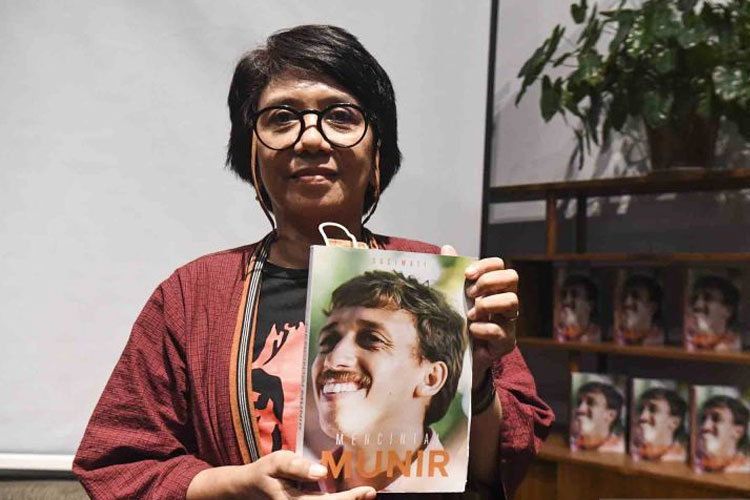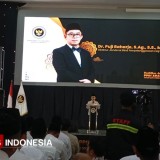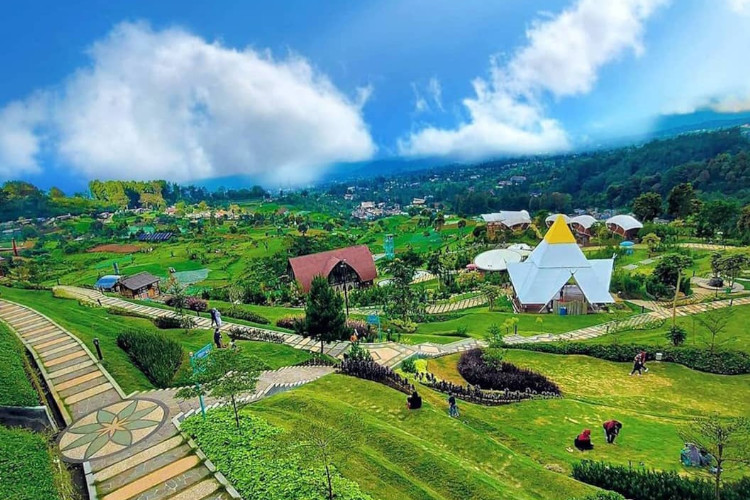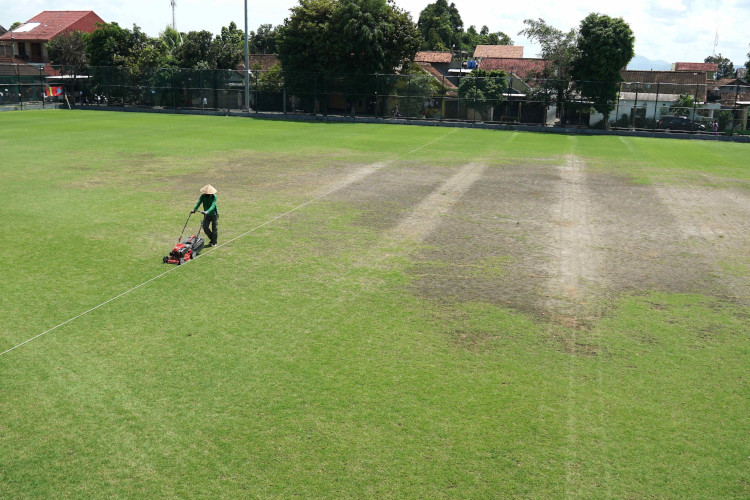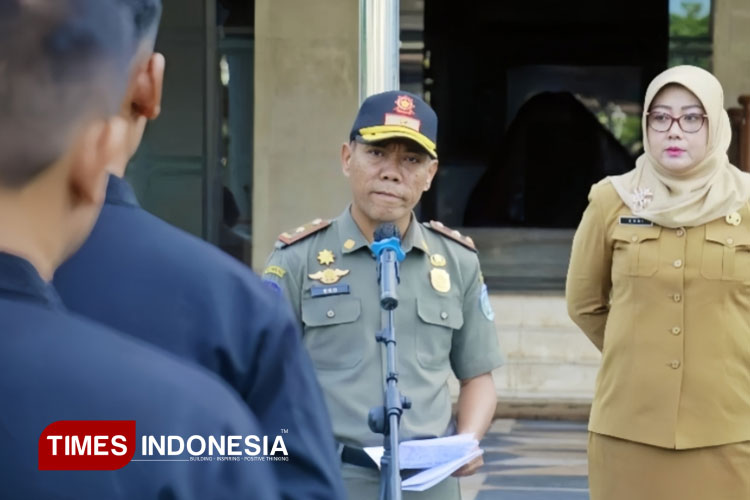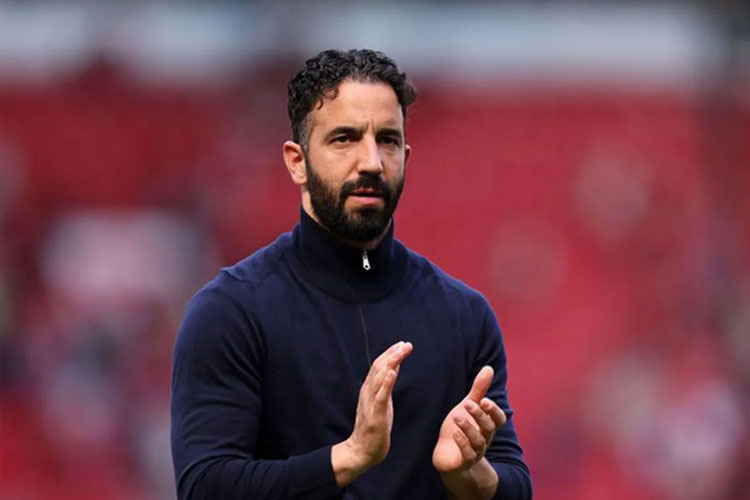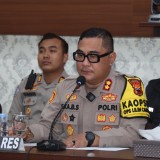TIMES SINGAPORE, MALANG – On September 7, 2004, Indonesia lost a fierce human rights activist, Munir Said Thalib. Munir was murdered with arsenic poison on a Garuda Indonesia flight from Jakarta to Amsterdam, Netherlands. At the time, Munir, together with KONTRAS (Commission for the Disappeared and Victims of Violence), was actively exposing cases of kidnapping and murder of reformist activists by the government.
After 20 years, justice in this case remains a major question, even though the courts have sentenced several individuals involved. The intellectual mastermind behind this case has yet to be held accountable. TIMES Indonesia had the opportunity to speak with Suciwati, Munir's widow (1/8/2024) to discuss her journey in seeking justice and her memories of Munir.
How do you remember Munir as a husband and father?
Munir was a very romantic and loving person. Although initially having a patriarchal mindset, Munir was always open to learning and changing. We often argued, but he was always willing to listen and adjust to my needs. For instance, we had a weekly tradition of spending time together or if I needed some time alone, he always accommodated that. We understood and learned from each other, making our relationship stronger.
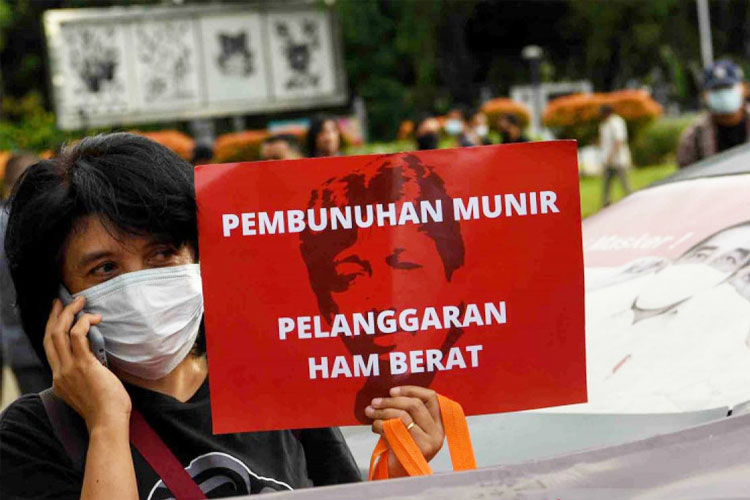
As a father, he was close to his children. The kids would always greet him with excitement whenever he came home. I could see them light up as soon as they heard the sound of their father's motorcycle arriving. Their bond was extraordinary because he was genuinely involved in their daily lives, including raising and caring for them and the family.
What do you think motivated Munir in his fight for human rights?
Munir always said that defending the oppressed was his calling. He grew up in a deeply religious environment and was taught from an early age to always stand for justice. As he journeyed through life, he became more convinced that oppression must be rejected wherever it occurs. Even when the threats became severe, he remained steadfast in his beliefs. He once said that stopping his fight was akin to committing suicide, as defending justice was the breath of his life.
How did you react when you first heard the news of Munir's death?
At first, I didn't believe it. I'm used to dealing with facts, seeing things with my own eyes as part of investigations. So, naturally, I couldn't believe it at first. But it was Usman (Usman Hamid), Munir's close friend, who told me. Usman called me at home and informed me that Munir had passed away on a Garuda flight from Jakarta to Amsterdam.
What did you do after hearing about Munir's death?
I tried to confirm the news by calling Garuda in Jakarta and Schiphol. However, until I saw it with my own eyes, I couldn't believe it. When I finally received confirmation, it felt like my world had collapsed. I can't express how hard it was.
Nearly 20 years since Munir’s assassination, how do you see the progress in handling this case?
After 20 years, this case shows that the enforcement of law in Indonesia is still far from satisfacting. Although there has been support, so far, we've only seen people who were merely pawns being punished, while the mastermind behind the case remains at large.
If we look at the current situation, this case reflects the deteriorating state of law enforcement in Indonesia, not just in its implementation but also in the morality that should be its foundation.
What has been the biggest challenge you’ve faced in seeking justice for Munir?
Legal instruments that should be used for prevention are not being implemented properly. As a result, one cannot expect law enforcement to be a moral compass for the nation when morality itself has been destroyed by those in power. Law becomes merely a tool for power, and in such a situation, law loses its strength to uphold justice.
Law enforcement in Indonesia is still very weak and often politicized. The morality and integrity of law enforcers are frequently questioned. Many cases are not resolved fairly due to the interference of those in power.
Have you ever felt hopeless in this fight? What keeps you going?
When I feel hopeless, I remain silent. But for the past 20 years, I have not been silent and still for even one second. For 20 years, I have continuously pushed for the resolution of this case. I have never given up. Over these 20 years, I have kept fighting and pushing for Munir's case to receive the justice it deserves.

Editor’s Note: Suciwati founded the KASUM Foundation (Action Committee for Solidarity for Munir). Suciwati is committed to advocating for justice and human rights. KASUM not only fights for justice for Munir but also becomes a voice for the oppressed across the country. Through various activities and campaigns, Suciwati inspires many to continue fighting for basic human rights, making her a significant figure in Indonesia's human rights landscape.
Suciwati also founded the Omah Munir Museum in 2013 and initiated the "Menolak Lupa" (Refuse to Forget) campaign, aimed at reminding the public of what Munir had done for Indonesia.
In your opinion, what should the government do to resolve this case?
This case should have been handled a long time ago without facing so many obstacles. In my opinion, Komnas HAM, as a state institution, has the power to push for recognition of this as a severe human rights violation. If Komnas HAM has declared this a grave human rights violation, that legitimacy should be acknowledged and acted upon.
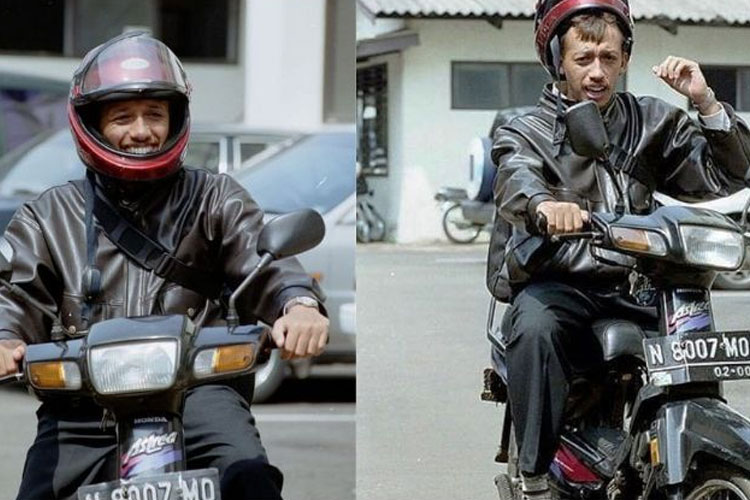
Cases like this will never truly be closed. They will remain open and become the concern of many, just like the 1965 case and others. President Jokowi must understand that resolving cases of severe human rights violations requires careful thought and cannot be done with quick or superficial solutions.
Do you feel there has been a change in public awareness about the importance of human rights since Munir's death?
The change in public awareness about human rights violations after Munir's death is still uncertain. If I am honest, there might be a slight increase in awareness, especially with the development of technology and social media, which allows information to spread quickly. However, deeper values have not fully taken root.
We can see how many people are still apathetic about these issues. This apathy occurs systematically because those in power and the government tend to openly exercise power without considering the justice or morality they should uphold.
How would you like the younger generation to remember Munir and his struggle?
Remember Munir as an honest and intelligent person who always adhered to simple principles. He never sought positions of power or personal gain. He was once asked to be more involved in the government, but he stood by his principles. I remember when he was asked about his ambitions for power, his answer was always the same: "If everyone wants to be in power, who will defend the victims?"
What is your message to those who are still fighting for justice, including in the Kanjuruhan Tragedy and other cases?
Stay strong. Believe that the value of truth must continue to be fought for and should never be abandoned midway.
I hope that law enforcement in Indonesia will become stronger and not be politicized. I hope that law enforcers will have high morality and integrity in carrying out their duties. I also hope that the Indonesian people will become more aware of the importance of human rights and continue to fight for them. Although it is difficult, I believe that change can happen if we all work together and never stop fighting. (*)
Artikel ini sebelumnya sudah tayang di TIMES Indonesia dengan judul: Unyielding Justice: The 20-Year Fight to Honor Munir Said Thalib’s Legacy
| Writer | : Khodijah Siti |
| Editor | : Khodijah Siti |
